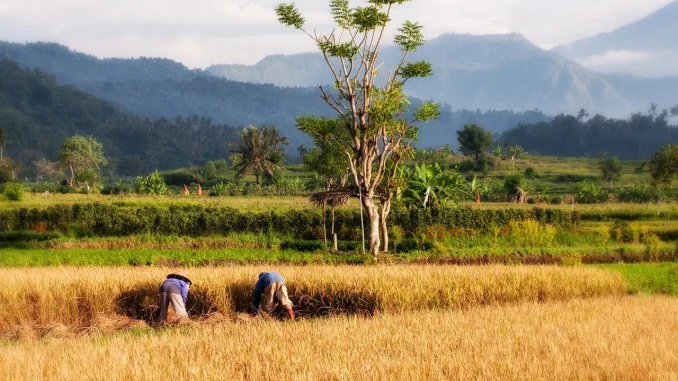
Indonesia, Southeast Asia’s largest economy, has witnessed impressive economic growth in recent decades. As the largest archipelago in the world and a nation rich in natural resources, Indonesia stands at the intersection of major global trade routes, making it an attractive investment destination. In this article, we explore the opportunities and challenges faced by Indonesia as it navigates its path towards becoming a key player in the global economy.
Indonesia’s Economic Transformation: A Growing Powerhouse
Indonesia’s transformation from a low-income country to a middle-income economy is nothing short of remarkable. With a population of over 270 million people, Indonesia represents the fourth-largest country in the world, offering a huge domestic market. Over the past two decades, Indonesia has achieved consistent GDP growth rates, with an average of around 5% annually, making it one of the fastest-growing economies in the region.
The rise of the Indonesian middle class has fueled this economic expansion, driving demand for consumer goods, real estate, and services. This has led to a burgeoning retail sector, with both domestic and international brands capitalizing on the increasing purchasing power of Indonesian consumers.
Key Industries Driving Indonesia’s Growth
- Manufacturing: Indonesia has made substantial progress in diversifying its economy, shifting from an agriculture-based economy to one that is more reliant on manufacturing and services. The manufacturing sector, which contributes around 20% of the GDP, has become the backbone of the economy, with electronics, textiles, and automotive industries taking center stage.
- Natural Resources: Indonesia is one of the world’s largest exporters of coal, palm oil, and natural gas. The mining and agricultural sectors continue to play a pivotal role in Indonesia’s economy, supplying global markets with essential commodities. As the global energy transition accelerates, Indonesia has the potential to become a major supplier of renewable energy resources, such as geothermal energy, given its abundant natural reserves.
- Tourism: The tourism industry is a major contributor to Indonesia’s GDP, with millions of international tourists visiting iconic destinations like Bali, Jakarta, and Lombok. The government has been promoting its “10 New Balis” initiative, aimed at developing new tourism destinations to replicate the success of Bali and further boost the sector’s growth.
Investment Opportunities in Indonesia
As Indonesia continues to develop, it offers a wide range of investment opportunities, particularly in infrastructure, digital economy, and renewable energy.
Infrastructure Development
Indonesia has embarked on an ambitious infrastructure development plan, with the government pledging to spend billions of dollars on projects such as new highways, ports, airports, and railways. This focus on infrastructure is crucial for enhancing connectivity between Indonesia’s thousands of islands and facilitating smoother trade both domestically and internationally.
The government has also introduced various incentives for foreign investors, including tax holidays, relaxed regulations, and streamlined investment procedures. Key infrastructure projects, such as the construction of the new capital city in East Kalimantan, are expected to attract substantial foreign investment and spur further economic growth.
Digital Economy and Tech Startups
The digital economy in Indonesia is booming, with the country’s internet penetration rate surpassing 70%. Indonesia is home to a thriving e-commerce ecosystem, led by platforms like Tokopedia, Bukalapak, and Shopee, which have transformed the way Indonesians shop. Moreover, Indonesia has a rapidly growing fintech sector, offering innovative solutions for financial inclusion and digital payments.
Indonesia is also home to several tech unicorns, such as Gojek and Traveloka, which have gained international recognition. The government’s push for digital transformation, combined with a young and tech-savvy population, creates a fertile environment for tech startups to flourish.
Renewable Energy and Sustainability
Indonesia’s potential in the renewable energy sector is significant, particularly in geothermal, solar, and hydroelectric power. As one of the world’s largest producers of geothermal energy, Indonesia has set ambitious goals to increase the share of renewables in its energy mix, reducing its reliance on coal and supporting global efforts to combat climate change.
Investors are increasingly looking at opportunities in green energy projects in Indonesia, as the government offers incentives for renewable energy investments and works to improve regulatory frameworks in the sector.
Challenges Facing Indonesia’s Economy
Despite its impressive growth, Indonesia faces several challenges that could hinder its economic trajectory.
Infrastructure and Logistics Bottlenecks
While Indonesia has made strides in improving its infrastructure, the country still faces significant challenges in connecting its vast and dispersed archipelago. Poor infrastructure in rural areas, combined with high logistics costs, creates barriers to market access, particularly for small and medium-sized enterprises (SMEs).
In addition, congestion in major cities, such as Jakarta, has resulted in significant productivity losses. The government’s efforts to decentralize and promote development in other regions are essential for overcoming these bottlenecks.

Regulatory and Bureaucratic Hurdles
Investors in Indonesia often cite bureaucratic red tape as a major challenge when entering the market. Complex regulations, overlapping jurisdictions, and a lack of transparency in the legal framework can make it difficult for businesses to operate efficiently. Although the government has introduced reforms to improve the ease of doing business, more work is needed to create a business-friendly environment.
Environmental Sustainability
Indonesia’s heavy reliance on natural resource extraction has raised concerns about the sustainability of its economic growth. Deforestation, mining activities, and the expansion of palm oil plantations have contributed to environmental degradation, threatening Indonesia’s biodiversity and contributing to climate change.
The government has implemented various policies to promote sustainable development, such as the moratorium on new palm oil plantations and efforts to reduce deforestation. However, enforcing these regulations remains a challenge, and further action is needed to balance economic growth with environmental protection.
Human Capital Development
Indonesia’s education and workforce development systems need improvement to ensure that the country can meet the demands of a modern, competitive economy. The government has recognized this challenge and is investing in education reforms to enhance vocational training, digital literacy, and STEM (Science, Technology, Engineering, and Mathematics) skills.
Conclusion: A Bright Future Amid Challenges
Indonesia’s rise as an economic powerhouse presents a wealth of opportunities for investors, particularly in infrastructure, digital economy, and renewable energy. While the country faces significant challenges in areas such as infrastructure, regulation, and environmental sustainability, ongoing reforms and government initiatives aim to address these issues and unlock the country’s full potential.
As Indonesia continues to grow and integrate into the global economy, the key to its success will lie in its ability to navigate these challenges while capitalizing on its abundant resources and strategic geographic location.